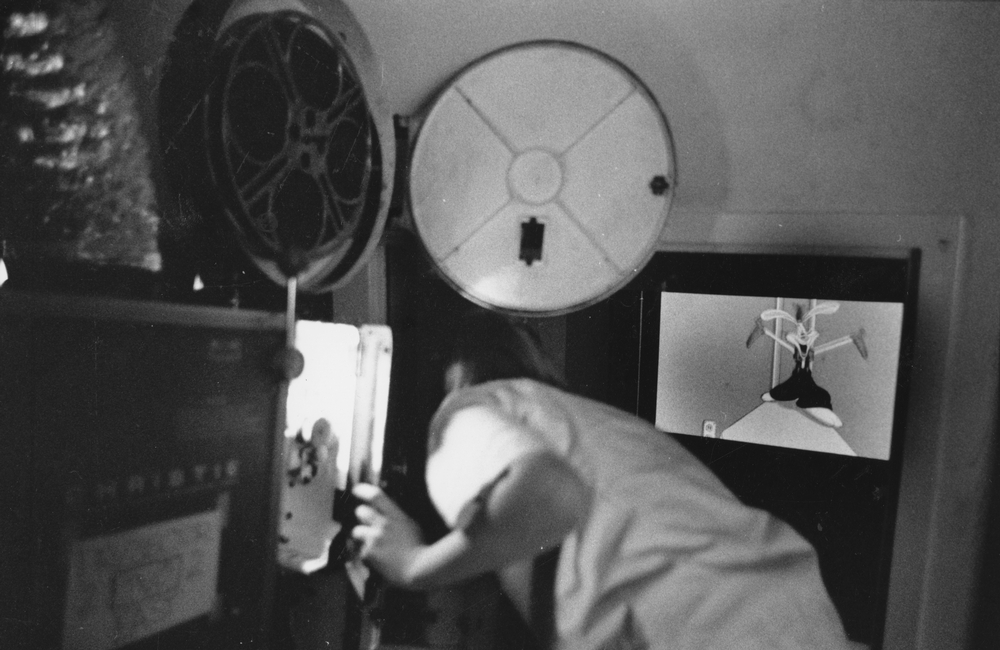
About Doc
We’re Doc Films, a student-led, volunteer-run movie theater and film society at the University of Chicago. With roots going back to 1932, Doc is the oldest student film society in the nation (per the MoMA) and perhaps the oldest continuously running theater in Chicago.
Contact
By email: doc@docfilms.org
By phone: 773-702-8574
By snail mail:
Doc Films
University of Chicago
Ida Noyes Hall
1212 E. 59th St.
Chicago, IL 60637
Our newsletter
Subscribe here
Our socials
@docfilmschicago
Note: we are generally more responsive to email than other methods.
Our Executive Board
General Chair
Joan Bahnfleth
doc@docfilms.org
Programming Chair
Avivit Ashman
programming@docfilms.org
Volunteer Chairs
Julia Mastracci and Bella Andrade
volunteer@docfilms.org
Special Events Chair
Grace Moritz
specialevents@docfilms.org
Publicity Chair
Aaryan Kumar
publicity@docfilms.org
Design Chair
Leo Frankel
design@docfilms.org
Web Chair
Tomás Quinteros
web@docfilms.org
Archivist/Librarian
Julian McBride
librarian@docfilms.org
A Short History of Doc
The organization named ’Doc Films’ was officially founded in December 1940 as the International House Documentary Film Group, though its antecedents stretch back to 1932. Initially the group focused on "the realist study of our time via nonfiction film," but the documentary alone could not sustain the organization; within a few years, the group’s programs expanded to include fiction and experimental films, a mixture that it maintains to this day.
Many film directors, among them Alfred Hitchcock, Woody Allen, John Ford, and Claire Denis, have visited Doc to present films and lead discussions. Over the decades Doc has hosted an astonishing number of Chicago premieres, giving the city its first glimpse of such masterpieces as The Rules of the Game, Au hasard Balthazar and Brokeback Mountain.
Volunteering for Doc has led several former students to careers in filmmaking and film criticism. Former members include Ernest Callenbach, founding editor of Film Quarterly; Gordon Quinn and Gerald Temaner, co-founders of Kartemquin Films (Hoop Dreams, Golub, Home for Life) and filmmakers Aaron Lipstadt (City Limits, Android) and Myron Meisel (It’s All True: Based on an Unfinished Film by Orson Welles). Most recently, Doc alums Becca Hall, Julian Antos, and Kyle Westphal founded the Chicago Film Society, an organization promoting the preservation of film while also programming screenings at local cinemas.
Perhaps the character of Doc Films is best encapsulated by our entry in Vanity Fair’s The Film Snob’s Dictionary (March 2004, p. 332): "The film society of the University of Chicago, founded in 1932 as the Documentary Film Group. Hard-core beyond words and lay comprehension, the society is populated by 19-year olds who have already seen every film ever made, and boasts its own Dolby Digital-equipped cinema and an impressive roster of alumni that includes-new Snob-revered critic Dave Kehr."
Doc Films hopes to reach a wide-ranging audience, from film aficionados to casual moviegoers, by cultivating and facilitating an excitement for the study of film. Our mission is to nurture and inspire future writers, filmmakers, and creative artists to tackle the professional world of cinema.
The Max Palevsky Cinema
Dedicated to providing a low-cost, high-quality venue for artistic, relevant and socially important domestic and international movies, Doc currently shows films at the University of Chicago's Max Palevsky Cinema, located at 1212 East 59th Street. The theater is named after Max Palevsky, whose generous gift allowed Doc to build and operate a state-of-the-art cinema.
The cinema boasts two Simplex XL 35mm projectors with Christie xenon lamphouses, one Eastman 25 16mm projector, and an NEC NC1200C digital projector. The projectors' variable speed and full aperture lens allow Doc Films to present silent films in the closest approximation to their original exhibition. The theater's Dolby Digital and Digital Theater Systems (dts) audio systems meet the highest standards in digital sound.
Tickets are exclusive to each screening and not refundable.






